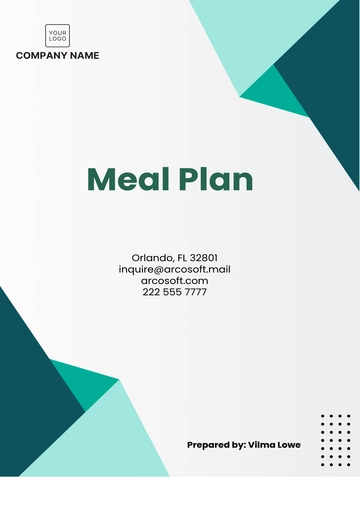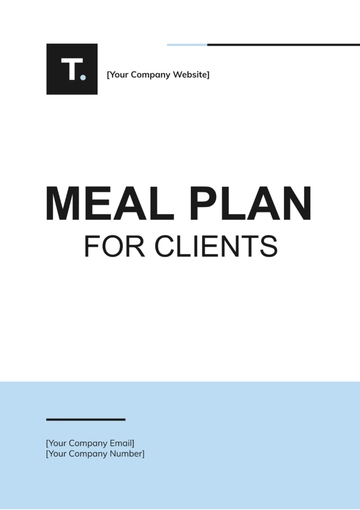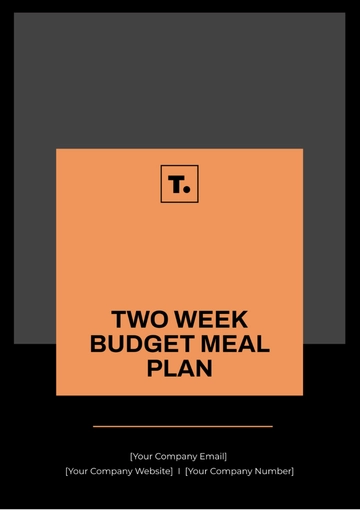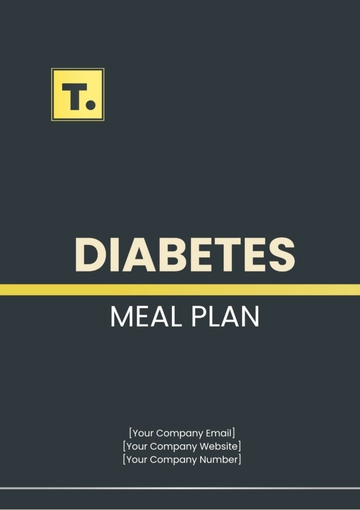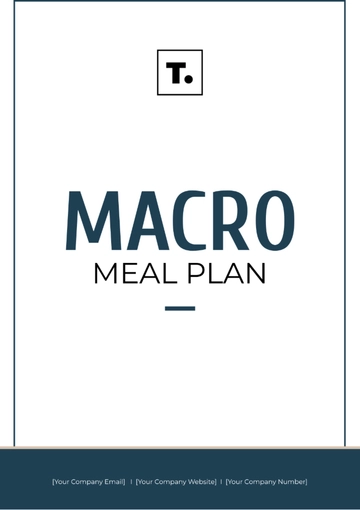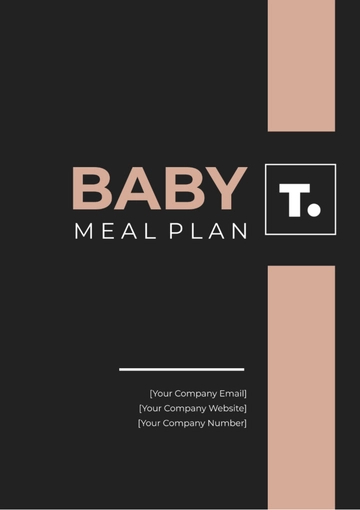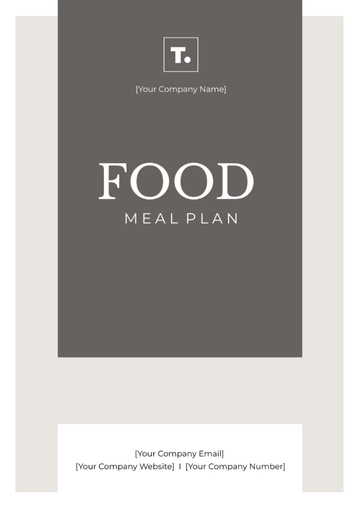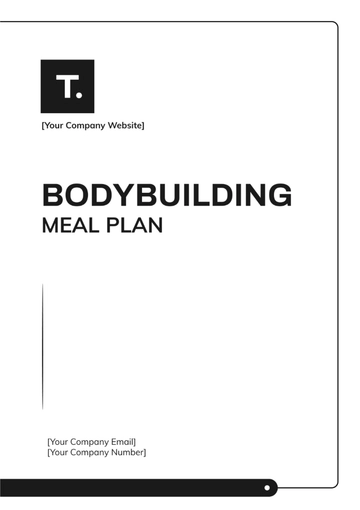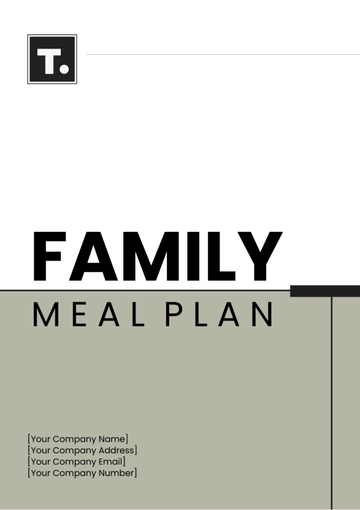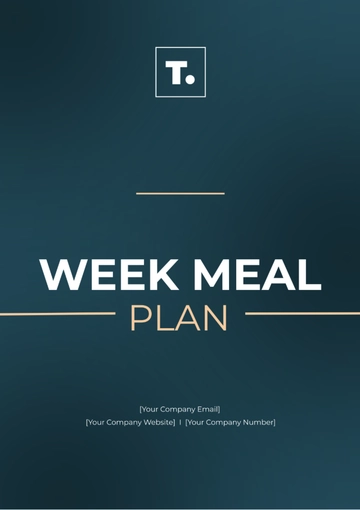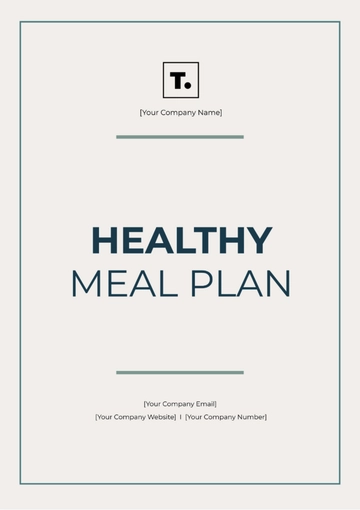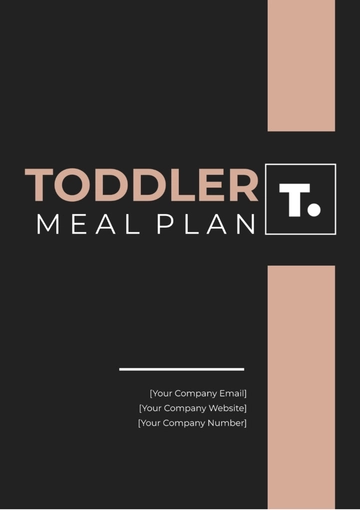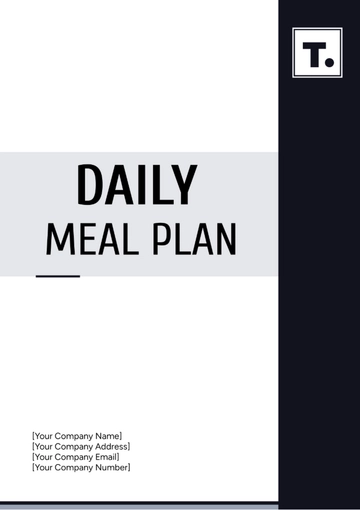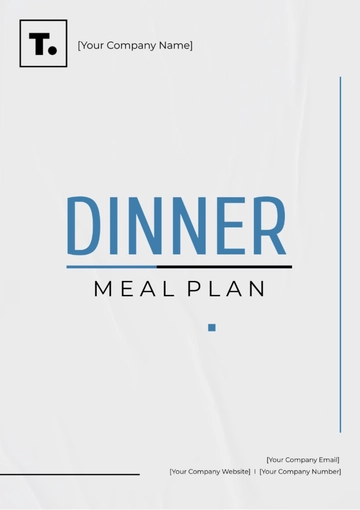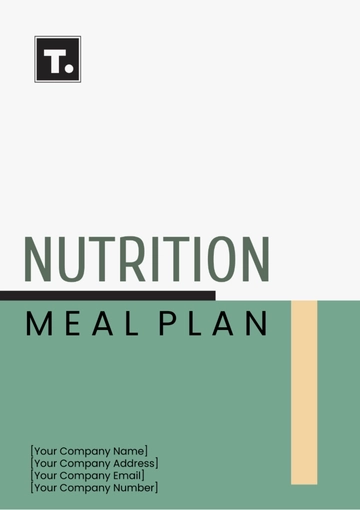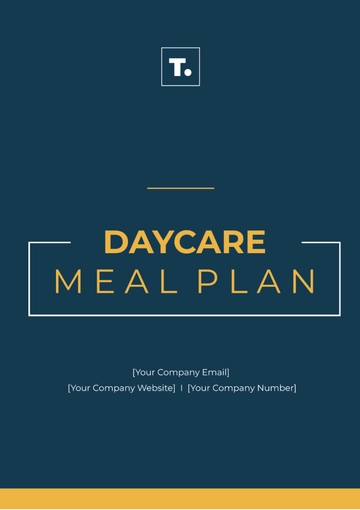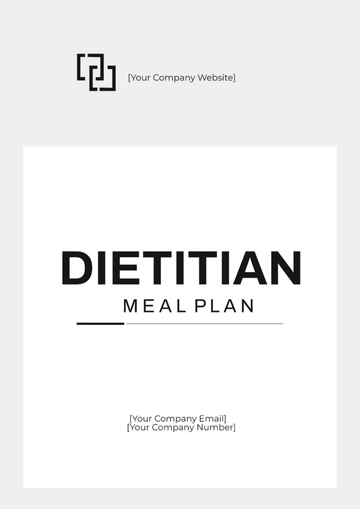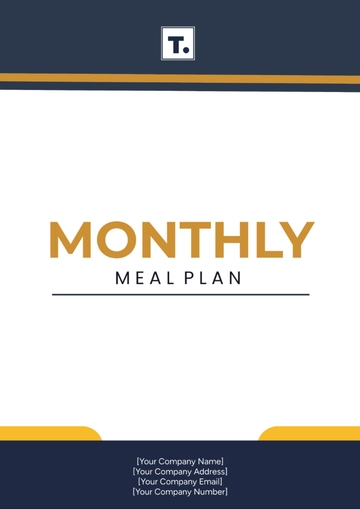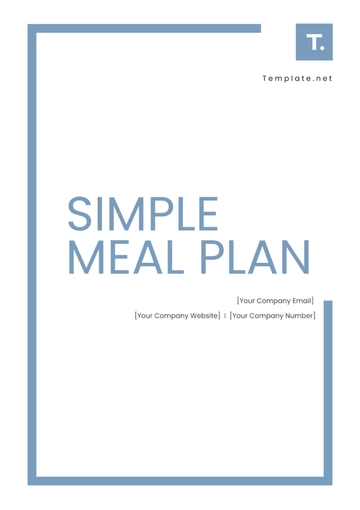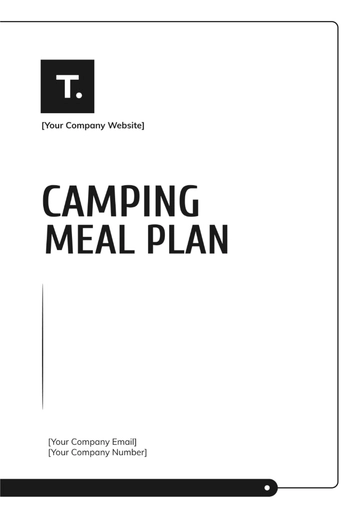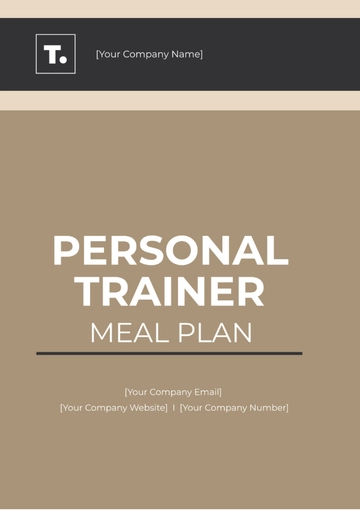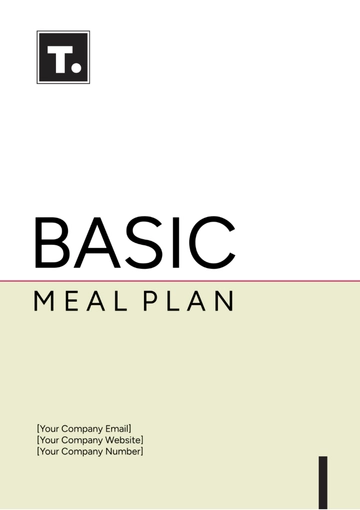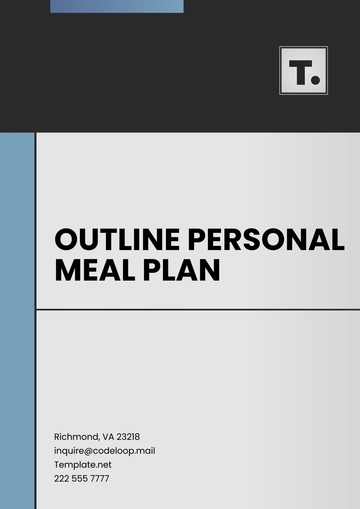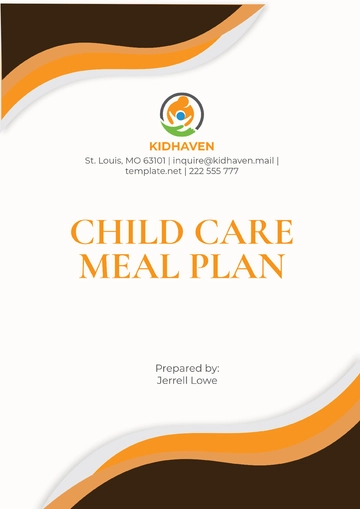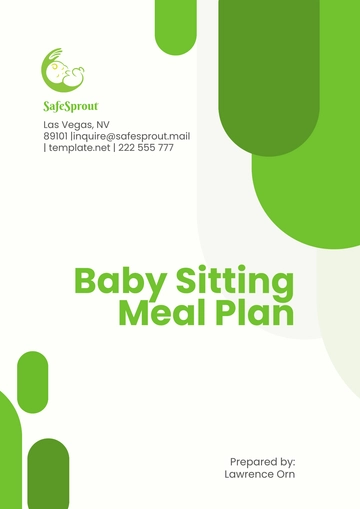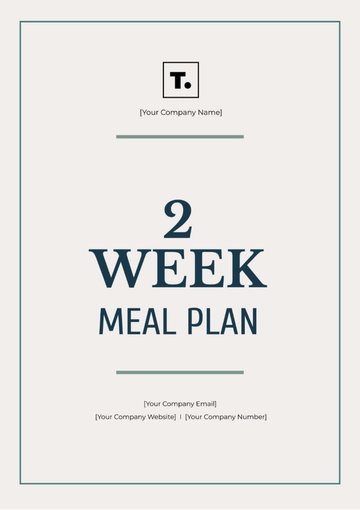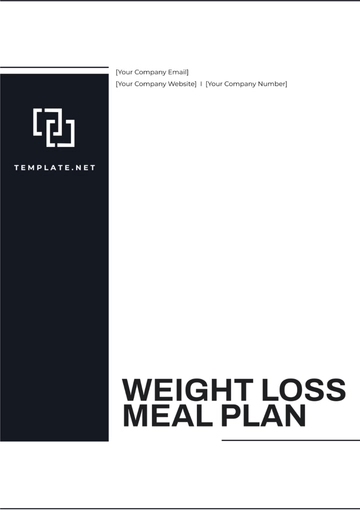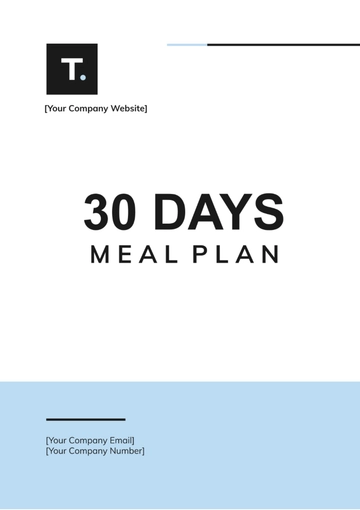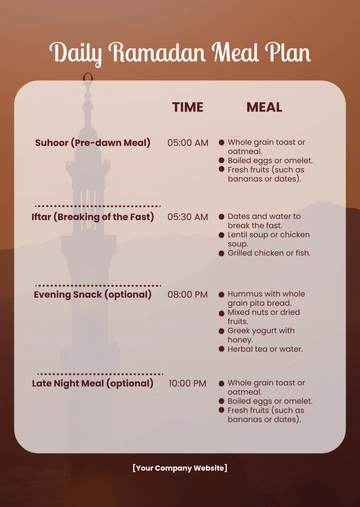Free Meal Plan Syllabus
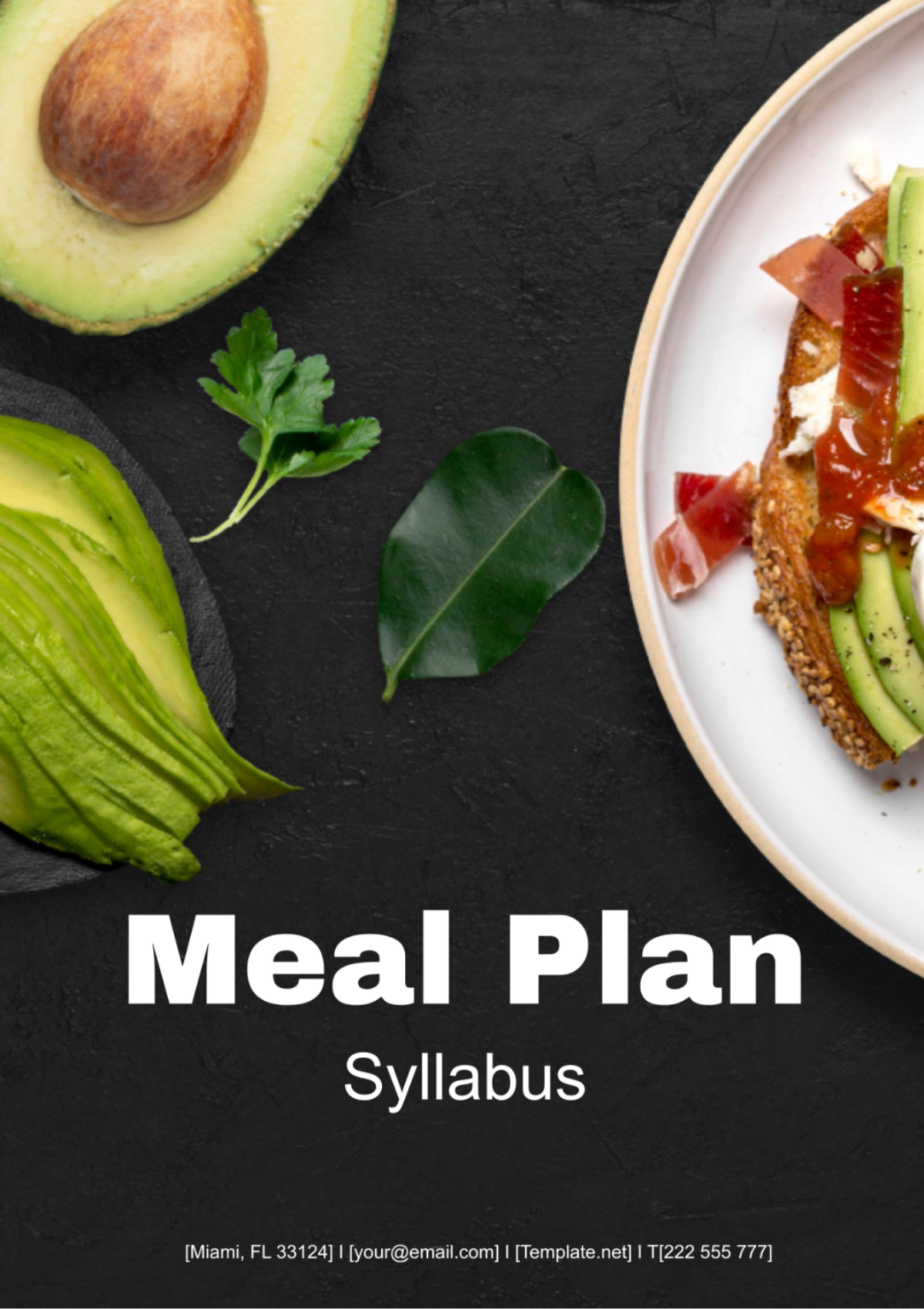
Meal Plan Course
Course Title | [COURSE TITLE] |
Course Code | [COURSE CODE] |
Instructor Name | [YOUR NAME] |
[YOUR EMAIL] | |
Office Hours | [OFFICE HOURS] |
Class Location | [CLASS LOCATION] |
Class Time | [CLASS TIME] |
Class Duration | [DATE] - [DATE] |
1. Course Description
The course on Meal Planning and Healthy Eating is designed to empower individuals participating in the wellness program with the essential knowledge and skills required to make informed dietary choices and create balanced meal plans. Participants will gain a comprehensive understanding of nutrition fundamentals, dietary considerations for optimal health, and practical guidelines for planning nutritious meals to support overall wellness.
2. Instructor Information
Instructor: [YOUR NAME]
Contact: [YOUR EMAIL]
Organization: [YOUR COMPANY NAME]
3. Learning Objectives
Upon completion of this course, participants will be able to:
Understand the fundamental principles of nutrition and their impact on health.
Identify dietary considerations for various health goals, including weight management, disease prevention, and energy optimization.
Develop personalized meal plans that align with individual dietary preferences, lifestyle, and nutritional needs.
Demonstrate knowledge of portion control, food labeling, and healthy cooking techniques.
Evaluate the quality of food choices and make informed decisions when selecting foods for optimal health.
4. Course Schedule
Week | Topic | Activities |
|---|---|---|
1 | Introduction to Nutrition and Meal Planning | Lecture, Discussion |
2 | Understanding Macronutrients and Micronutrients | Presentation, Hands-on Activities |
3 | Dietary Considerations and Specialized Diets | Guest Speaker, Case Studies |
4 | Meal Preparation Techniques | Cooking Demonstration, Recipe Sharing |
5 | Grocery Shopping Tips and Meal Budgeting | Field Trip, Budgeting Exercise |
6 | Eating Out Mindfully | Restaurant Visit, Menu Analysis |
7 | Meal Planning for Specific Goals | Group Projects, Goal Setting |
8 | Review and Final Assessment | Exam, Presentation of Meal Plans |
5. Required Reading and Materials
"Nutrition: Concepts and Controversies" by Frances Sizer and Ellie Whitney
"The Whole Foods Diet" by John Mackey, Alona Pulde, and Matthew Lederman
Access to reliable nutrition websites such as choosemyplate.gov and eatright.org
Cooking utensils and equipment for practical cooking sessions
Grocery shopping list templates and food diary journals
6. Assignments and Assessments
Weekly meal planning assignments with detailed meal plans and nutritional analysis.
Case studies analyzing dietary scenarios and proposing appropriate meal solutions.
Cooking demonstrations and recipe submissions showcasing healthy meal preparation techniques.
Participation in group discussions and peer evaluations of meal plans.
Final project: Designing a comprehensive meal plan for a specific health goal or dietary restriction.
7. Course Policies
Attendance: Regular attendance and active participation in all sessions are expected.
Assignment Submission: All assignments must be submitted by the specified deadlines.
Respectful Communication: Respectful and professional communication is expected among participants and with the instructor.
Academic Integrity: Plagiarism or cheating will not be tolerated and may result in disciplinary action.
Confidentiality: Respect the confidentiality of personal dietary information shared within the course.
Technology Use: Use of electronic devices should be limited to course-related activities during sessions.
8. Grading Policy
Grading will be based on the following criteria:
Category | Weight |
|---|---|
Weekly assignments | 40% |
Case studies and cooking demonstrations | 30% |
Final project | 20% |
Participation and professionalism | 10% |
9. Additional Resources
Online recipe databases and meal planning apps for inspiration and convenience.
Local community resources such as farmers' markets and cooking classes.
Nutritional counseling services for personalized guidance and support.
10. Academic Integrity
Participants are expected to uphold the highest standards of academic integrity throughout the course. Any form of academic dishonesty, including plagiarism or cheating, will result in appropriate disciplinary action.
11. Communication Guidelines
Effective communication is vital for fostering a positive and collaborative learning environment. Participants are encouraged to engage in clear, respectful, and constructive dialogue with both the instructor and fellow participants. Open communication promotes understanding, facilitates learning, and enhances the overall educational experience. Should any questions or concerns arise during the course, participants are encouraged to seek clarification from the instructor promptly to ensure a productive learning experience for all.
12. Course Evaluation
At the conclusion of the course, participants will have the opportunity to provide valuable feedback through course evaluations. Your input is essential for assessing the effectiveness of the course content, structure, and delivery. We value your feedback and use it to continuously improve and enhance the learning experience for future participants. Your honest and constructive feedback is greatly appreciated and contributes to the ongoing refinement of our program.
Disclaimer
The information provided in this syllabus is for informational purposes only. Course content may be subject to change. Participants are encouraged to consult with healthcare professionals regarding specific dietary concerns. By enrolling, participants agree to abide by outlined policies.
- 100% Customizable, free editor
- Access 1 Million+ Templates, photo’s & graphics
- Download or share as a template
- Click and replace photos, graphics, text, backgrounds
- Resize, crop, AI write & more
- Access advanced editor
Discover the ultimate Meal Plan Syllabus Template on Template.net. Crafted for seamless organization, this editable and customizable tool streamlines your meal planning process. With compatibility in our Ai Editor Tool, effortlessly tailor your syllabus to suit your dietary needs and preferences. Revolutionize your meal prep today!
